Photo above: Laura Zhiss
By Rebecca Gaunt
Following a party line vote of 4-3 Thursday evening, public comments will no longer be broadcast or recorded for the public record by the Cobb County School District.
Superintendent Chris Ragsdale went on the defensive during Thursday’s school board work session over the public backlash to his policy proposal.
“This proposal has drawn criticism. Many from the same critics who seemingly criticize everything this district does. There is an assertion that we’re trying to keep public commenters quiet or keep the public from learning things public commenters say. That’s absolutely untrue,” he said.
Though the broadcast is not legally required, Cobb has done so since 2007.
Read more: Cobb school board policy change appears to cut public comments from broadcast – Cobb Courier
He said the reason for cutting comments from the broadcast is because the district takes on the legal liability for what is said. He noted people who had read from copyrighted material, as an example. In the past, the district has cut the feed for the individual speakers when that occurred. He also said it would allow people who are uncomfortable being broadcast to participate.
“Frankly, after more than 10 years, I’m used to false statements about me, and outright and easily disprovable lies being spread,” Ragsdale said.
Ragsdale took aim at board member Leroy Tre’ Hutchins and Cobb County Association of Educators President Jeff Hubbard for criticizing the proposal, saying a “real slap in the face is people who know better spreading baseless, nonsensical and insulting comments.”
Seven speakers spoke in opposition to the change during the afternoon meeting. 14 of the 15 slots at the evening session were filled with people there to protest public comment policies.
Heather Tolley-Bauer of Watching the Funds said, “You’ve spent our money on studios and Cobb-Ed TV, but now you want to make sure only people physically in the room can hear dissent, concerns, or whistleblowers, like when bus mechanics went ignored until they spoke at public comment, or when a $50 million event center scheme was exposed here and amplified by the public. Public comment is rarely step one. It’s where people go when all else fails, and you know it.”
John Sansom, a special education parapro in Cobb said, “The proposed changes before you are an attempt to censor the voices of the citizens who elect the board and fund the district’s budget with their mortgage payments and their rent payments.”
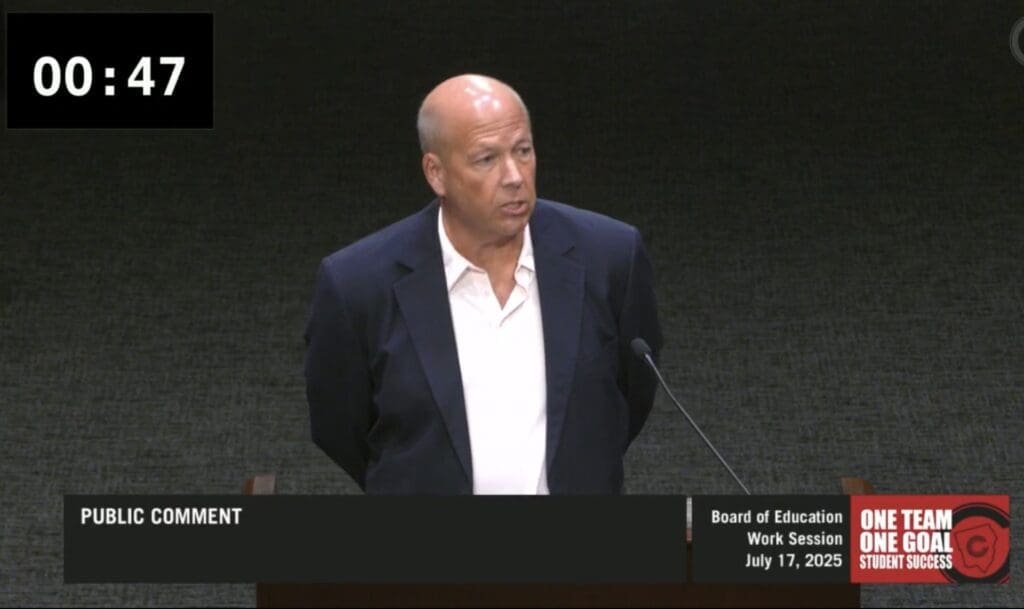
Stacy Efrat, a member of the Cobb elections board, compared her position to the school board.
“The Elections board has public meetings just like this with comment that is live streamed on YouTube. No matter what we do, someone is unhappy with us…Can you imagine the reaction if Cobb Board of Elections, which has a Democratic majority, announced tomorrow that we were no longer going to livestream public comments? The outrage would be swift and absolutely justified,” she said
State Rep. Lisa Campbell (D-Kennesaw) asked the board to “abandon this proposed harmful policy change, silence dissent, erase public accountability, and shield members from criticism.”
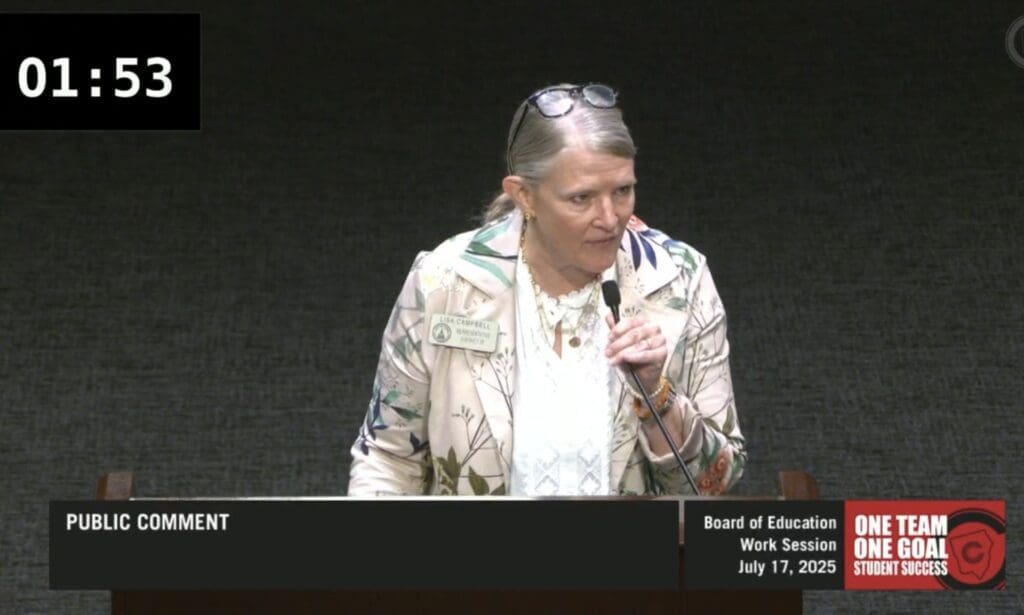
During the discussion, Ragsdale acknowledged he had proposed the policy change without input from board members.
Democratic board member Nichelle Davis questioned the process for proposing such policy changes in light of the difficulty the Democratic members, as the board minority, have putting items on the agenda for discussion since it requires the support of four board members.
Ragsdale called her assertion false and claimed she was taking the policy out of context, seemingly in reference to the fact that the first step in placing an item on the agenda is to request that the superintendent or board chair add it.
“I’ve asked for many things over the course of the three years I’ve been on the board to get on the agenda and have been denied every time but one. So to say we all have a chance to get on the agenda is a little bit misleading in actuality,” said Democratic board member Becky Sayler.
Chairman David Chastain, a Republican, interjected to tell her to follow policy.
“I have used the correct process and it has been denied repeatedly,” Sayler said.
“That’s an offline discussion,” Chastain replied.
Republican board member Randy Scamihorn jumped in to say he had not had problems getting items on the agenda.
“We as board members are not restricted in trying to move the ball down the field if it’s appropriate to move that ball,” he said.
Sayler replied that his experience as a member of the majority party was different.
“I’m offended by that remark,” he replied.
Chastain cut him off, telling him his offense was registered.
Asked if there had ever been a threat of litigation due to a comment, Ragsdale said yes. Hutchins asked for examples as none had ever been brought up for discussion to his knowledge. Ragsdale told him it could be discussed in executive session.
Republican school board member John Cristadoro said he had received thirty emails about the proposal prior to the meeting.
Cristadoro expressed agreement with Ragsdale’s assertion that the media would pick up on any noteworthy issues expressed during public comment and they would be disseminated that way.
He also called it a fallacy that cutting the comments from the broadcast would limit accountability for the district to act on the concerns shared.
Laura Zhiss spoke at the evening session.
“For many of us, especially those speaking hard truths like antisemitism in our schools, these two minutes are our only chance to be heard. And now you want to make sure no one outside this room ever hears us,” she said.
Patricia Auch, a member of the Mableton City Council, said, “When the public has the benefit of witnessing the issues brought to you by their peers, and later see that these issues are addressed, it builds trust and demonstrates a governing body who values transparency and isn’t afraid of accountability.”
Melissa Hagan, told the board that as a parent of three, she relies on the livestream to stay current on the issues.
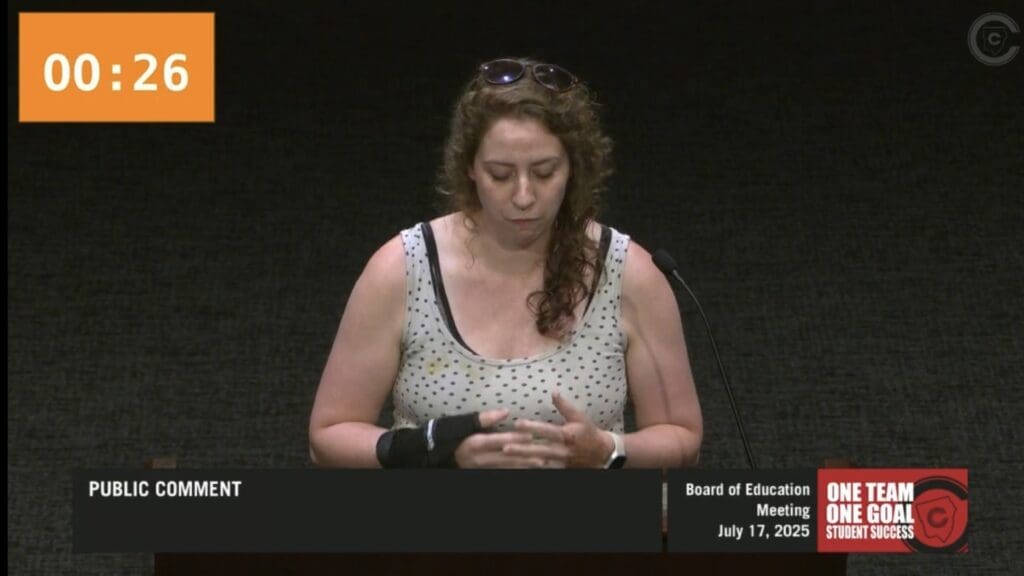
“Real time access allows people to hear concerns unfiltered, to witness the tone and passion behind the words. And to participate in the civic life of this district, even if they can’t physically be in this room,” she said.
Two speakers lambasted Ragsdale for appearing to not pay attention to them and being on his phone.
The updated policies also allow attendees who violate the rules to be banned indefinitely, a change from the previous policy of up to 60 days.
The request by Democrats to allow three board members to place an item on the agenda if not approved by the chair or superintendent, rather than requiring four, was defeated 4-3. The rule previously allowed three people to force an item on the agenda until 2020, after the board went from a 6-1 Republican majority to 4-3.
Similarly, Hutchins’ motion to allow speakers under the age of 18 to speak without a parent present if they have a signed permission slip failed 4-3.
“I want to apologize because I feel like the policy will erode the trust that we have with our constituents and within Cobb County,” Hutchins said.
View the discussion in full on the district website: Watch Meetings Online
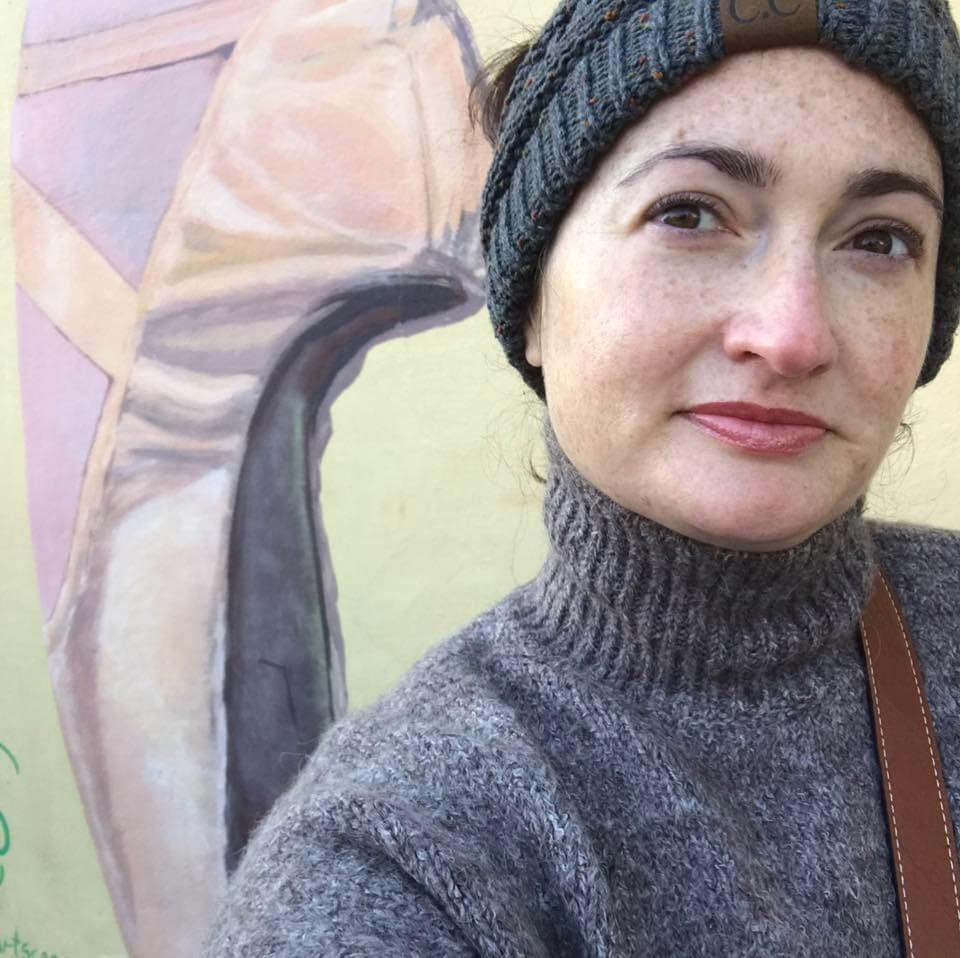
Rebecca Gaunt earned a degree in journalism from the University of Georgia and a master’s degree in education from Oglethorpe University. After teaching elementary school for several years, she returned to writing. She lives in Marietta with her husband, son, two cats, and a dog. In her spare time, she loves to read, binge Netflix and travel.
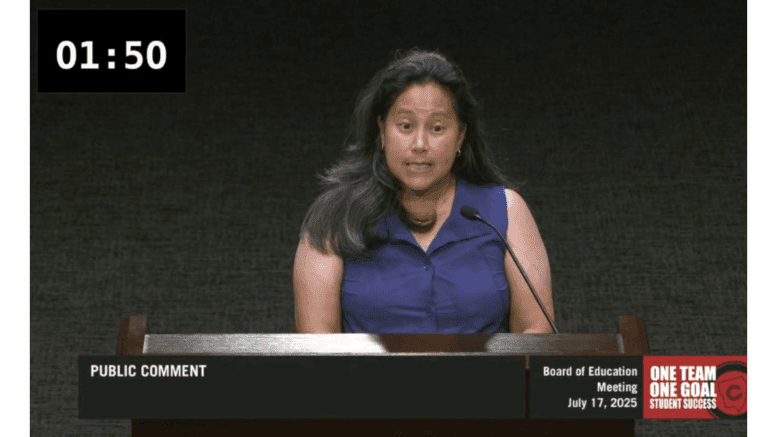
Looks like the trickle down censorship of the media is trickling it’s way down!! VOTE PEOPLE!!!
What else can it POSSIBLY be?? CENSORSHIP plain and simple.